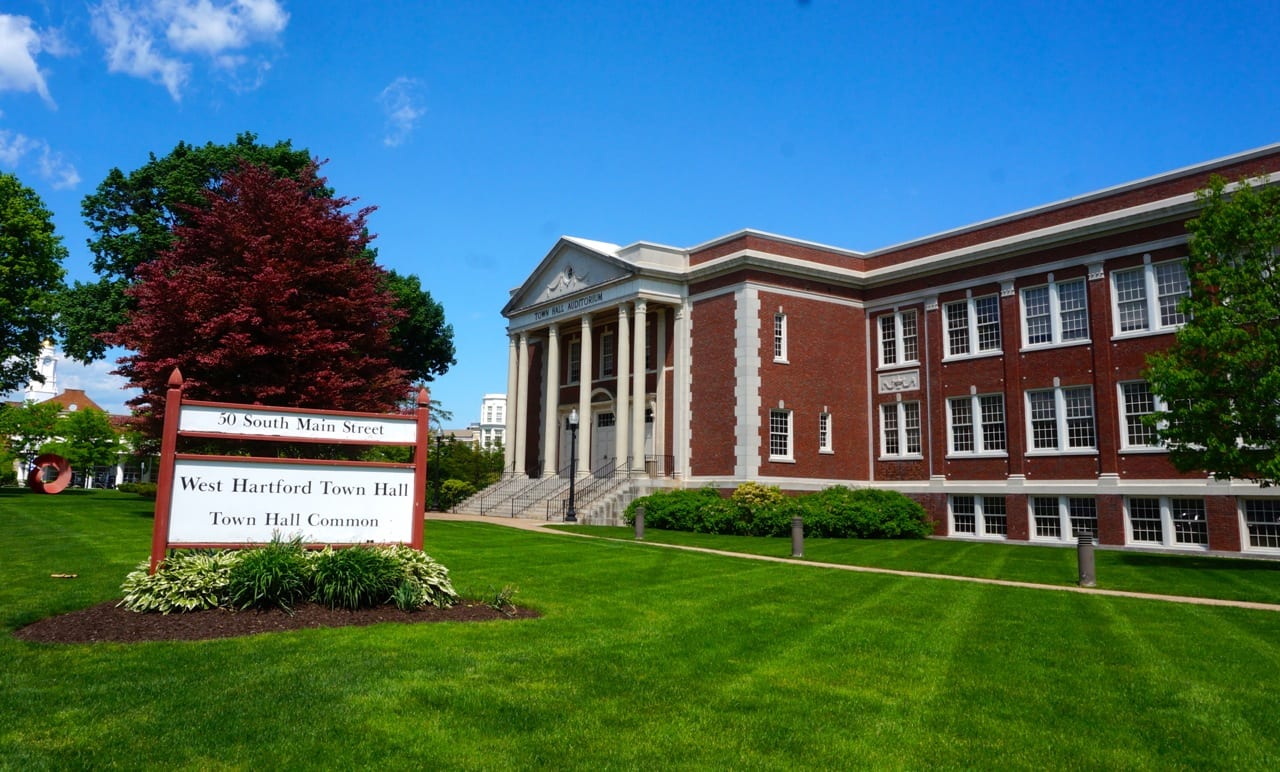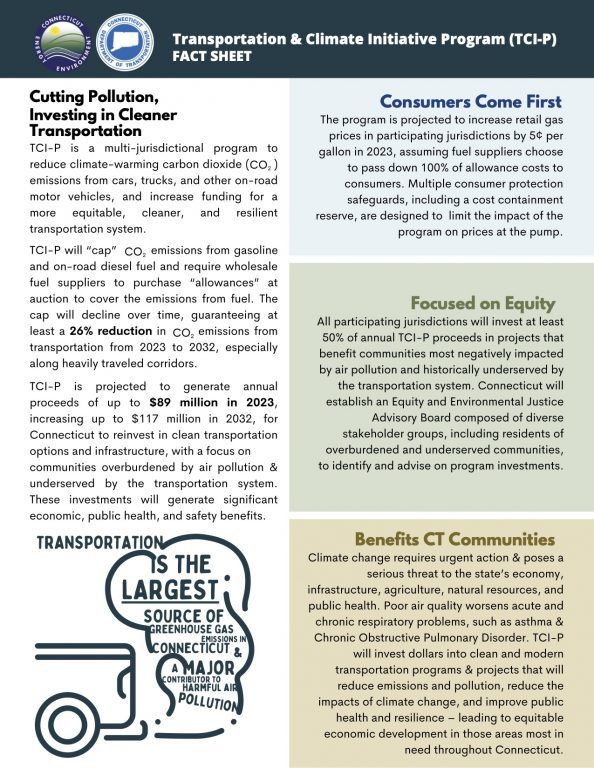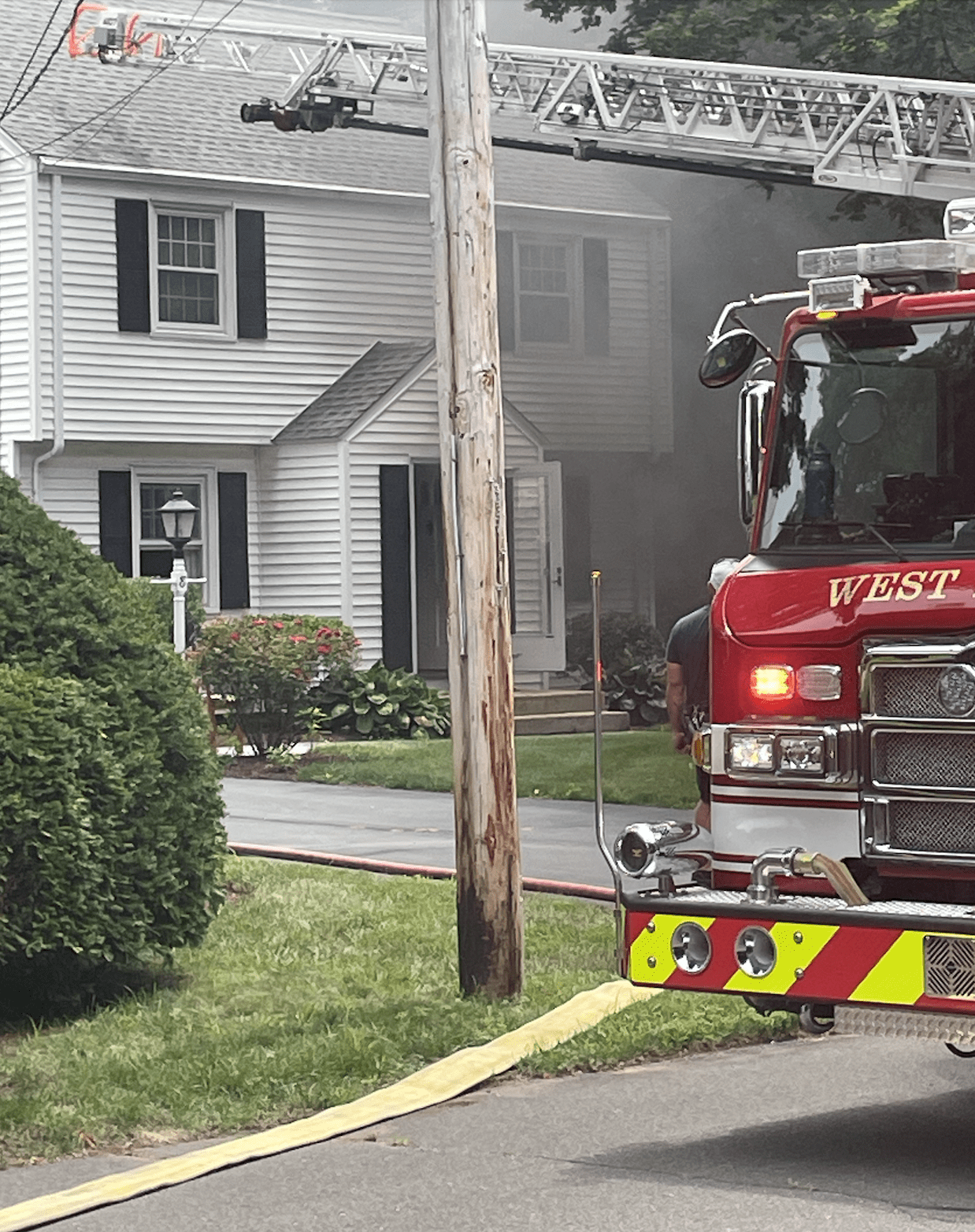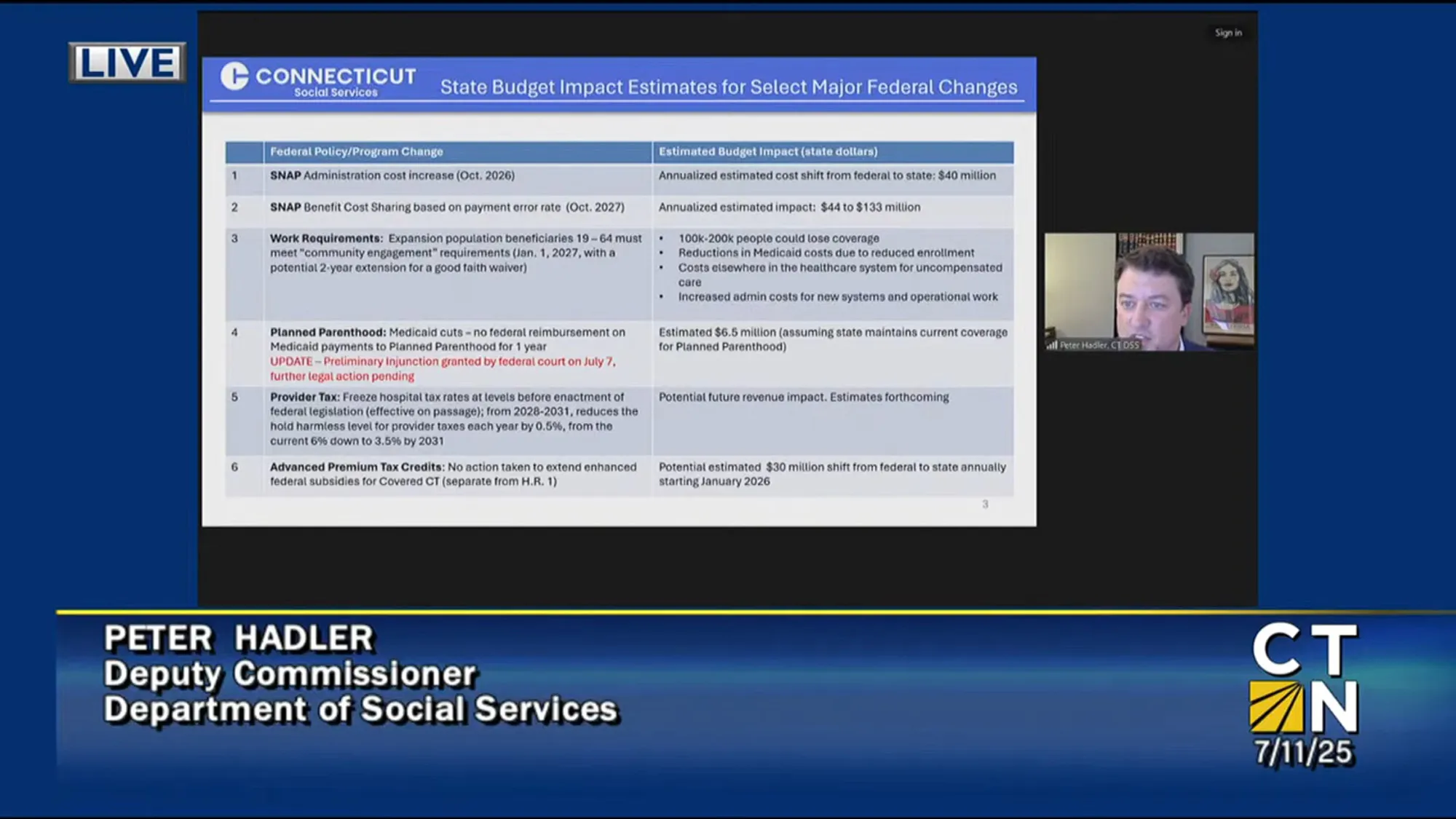West Hartford Town Council Gives Endorsement to Transportation Climate Initiative

Audio By Carbonatix

West Hartford Town Hall. Photo credit: Ronni Newton
The West Hartford Town Council voted to approve a resolution urging the legislature to adopt the Transportation Climate Initiative Program.
By Ronni Newton
Although the Transportation Climate Initiative Program (TCI-P) will not be on the agenda when the General Assembly meets in special session later this month, the program, which is strongly supported by the governor and the Department of Energy and Environmental Protection – and now by the West Hartford Town Council as well – is far from a dead issue.
With approval of a resolution this week, West Hartford joins the mayors of Hartford, Middletown, and Bridgeport, among others, in support of TCI-P.
“It’s been great to see all of the support for this policy. We’ve been very enthusiastic about all of its benefits to communities,” Katie Dykes, the commissioner of the Department of Energy and Environmental Protection (DEEP), told We-Ha.com on Thursday.
She is concerned that the state is not on track to meet its goal of reducing emissions by 45% from 2001 levels by 2030, and while there has been progress in the power sector, she said the transportation sector needs to do more.
“Transit emissions have been going up. We need to be cutting them by one-third to meet the goals by 2030” – goals Dykes said are not “stretch goals” but rather the bare minimum.
Connecticut Senate President Martin Looney said earlier in the week that a special session of the legislature in late September would likely focus only on the extension of the governor’s executive orders.
The West Hartford Town Council voted 6-2 Tuesday, with Mayor Shari Cantor and fellow Democrats Leon Davidoff, Beth Kerrigan, Ben Wenograd, and Carol Blanks, as well as Lee Gold (now a member of A Connecticut Party) supporting the resolution in support of TCI-P. Republicans Mary Fay and Chris Williams voted against it. Democrat Liam Sweeney was unable to attend the meeting.
Town Manager Matt Hart outlined TCI-P, which he explained has been designed to cap and reduce the negative environmental impact of transportation-related carbon emissions caused by gasoline and diesel fuel and require fuel suppliers to purchase allowances to cover the emissions from their fuel. If the cost of the allowances are passed along to consumers, they are projected to result in an increase in gas prices of 5 cents per gallon.
Funds generated from the program would then be used to invest in programs to reduce carbon dioxide emissions.
TCI-P, which would take effect in 2023, is projected to reduce carbon dioxide emissions by 26% by 2032, and to generate annual proceeds of up to $89 million in its first year alone to be used to invest in cleaner transportation and infrastructure. By 2032, the program is projected to raise $117 million in revenue for investment, which the state would like to use in communities that are burdened by pollution and underserved by transportation options.

DEEP-DOT TCI-P Fact Sheet
The Town Council’s Public Works and Facilities Committee previously passed the resolution (see PDF below) unanimously, said Wenograd, who chairs that committee. While the program sounds complicated he said it’s an important step to address the urgent problem of climate change.
“Climate change is real, it is a disaster. We are all talking about weather, about fires, about 200-year storms that seem to happen twice in a year … this is not something that we get to sit back on, it is a crisis,” he said.
While no plan is perfect, Wenograd said, and the legislature would likely make changes to the currently proposed plan, he urged the Council to pass the resolution and the legislature to take up the discussion. “The broad principle is we’ve got to do something. … What is the alternative; we’ve got to move forward.”
So many people are still in denial about the changes in weather patterns, Blanks, also a member of the Public Works and Facilities Committee, said. But, she said, “the time for later is here. … We have got to take care of this planet – it’s up to us.”
Climate change also affects public health as well, and “we cannot continue kicking the can down the road.” Blanks said she will urge her colleagues around the state to support TCI-P as well. “We have to be responsible and do something, and do something now,” she said.
Fay is also a member of the Public Works and Facilities Committee and while she supported the TCI-P resolution at the committee level she voted against it Tuesday.
While the concept itself is “like motherhood and apple pie and baseball,” once she had time to “really dig in,” Fay said she had concerns with issues in the program and resulting cost increases that she feared would trickle down to the middle class and the underserved – the population that needs the most help.
“Do something, that’s the right attitude … but doing something doesn’t mean doing ‘anything,’” Fay said.
Gold said the past few weeks, during which three incidents of unprecedented flooding rains have impacted the area, are a stark reminder of the reality of climate change. He said he supported TCI-P as an opportunity to begin the process of finding a solution, globally, for our own future and for future generations..
“West Hartford is important but it’s beyond West Hartford,” Gold said. “We have to survive together and we have to be the leaders – here, now.”
Williams, who in the past has voted against other resolutions intended to send a message to the state legislature, expressed his concerns from a procedural and jurisdictional standpoint. “The proposed legislation is enormous,” Williams said, noting that he would be uncomfortable supporting it without having the opportunity to have discourse with experts that the legislature will have.
Cantor said there is a clear connection between this legislation and West Hartford, which is surrounded by major highways, is a nexus of carbon dioxide, and has been supportive of alternative transportation options, including advocating for a train station in town.
“There’s more we want to do and we need other ways to fund it,” Cantor said. “It is up to us … it’s going to be hard and we’re going to have to make sacrifices but the cost of doing nothing is huge.” Something like this should have happened years ago, she added.
Dykes, who lives in West Hartford, said at this time DEEP doesn’t have enough tools that are needed to address climate change, the impact of which has been seen recently on a local level where roadways and basements have been flooded three times just in the past few weeks.
TCI-P can bring many types of benefits to communities, she said. “TCI-P will help us do our part … and can make a huge difference.”
Some of the examples she noted are funding the conversion of school and transit bus fleets from diesel to electric. Converting school buses would have the additional direct benefit of protecting children’s lungs from diesel fumes.
Investment in bike paths, transit-oriented development, and other means of transit could also benefit from TCI-P, said Dykes.
“It’s great to see the Town Council endorsing it,” she said.
Members of the public also provided testimony to the Town Council before the vote on the TCI-P resolution, including four who emailed their support.
Five of the six residents who spoke at the meeting supported it as well.
Alex Rodriguez noted that TCI-P would not be a gas tax, but rather environmental regulation and a step in the right direction needed to reach climate action goals that the state is already falling short on.
He said a vote in favor “would complement the leadership our town has taken so far,” and bring significant health benefits to the region.
“This seems like the bare minimum of bare minimums,” said Julia Farber, a member of the town’s Sustainability Advisory Group.
Steven Sack, a member of the town’s Clean Energy Commission and a fuel distributor, said while reducing emissions is important, “this Transportation Climate Initiative is not the way to do it. … The devil’s in the details.”
Sack said the program is just a cap program, and he fears TCI-P will create fuel shortages throughout the state and increase fuel costs to the town as well as to consumers.
Like what you see here? Click here to subscribe to We-Ha’s newsletter so you’ll always be in the know about what’s happening in West Hartford! Click the blue button below to become a supporter of We-Ha.com and our efforts to continue producing quality journalism.
 Loading...
Loading...




I must say it blows my mind that our Town Council is endorsing TCI-P despite the fact that if you do want to *do the right thing* and ACTUALLY drive an electric vehicle – you can not even take delivery of the No. 1 selling EV right here in CT. Instead you must drive to Mount Kisco, NY to take delivery, drive the car to CT with a temporary NY marker plate and then go through the hassle of registering the car in State and getting CT marker plates.
While endorsing the TCI-P is the right thing, why doesn’t the Town Council FIRST press our State representatives to make it easier to get EVs in CT? Why are we putting the cart before the horse?
Legacy auto manufacturers have been slow to push EVs, and vehicles from the number one EV manufacturer outnumber those from all other manufacturers combined 4 to 1 right now. Yet you can not get them easily in CT. WHY IS THAT? States that allow direct-to-consumer sales (or that at least make it easier) have 3x adoption of EVs (source: https://tinkertry.com/buyteslafromct )
You would think addressing this first^^^^ would be the LOGICAL first step to get us on the right path top addressing emissions from transportation. Maybe, just maybe, then the TCI-P would be more popular?
Logic? Common sense?
[And while it is noted that the no 1 EV manufacturer has closed most of their showrooms, there is still fierce opposition to them entering CT due to our absolutely ARCHAIC franchising laws and our State reps being absolutely SPINELESS (can I say that?) when it comes to this issue]
As more and more EVs come to market, DTC is only going to become more widespread. So can the Town Council please take care of first-things-first for a change??? If you are going to endorse TCI-P (right thing) then ALSO do the right thing and tell our Reps to make it easier to get EVs in CT.
Spot on. Special sessions should be reserved for matters requiring immediate attention. For example, how do we attract businesses to Hartford.
The TCI-P is a bad Idea. Again our elected officials are trying to force us to do things that are not possible and have us all buy new electric vehicles. But until we do that TCI-P will cause artificial fuel shortages. Please town council members read the TCI-P and how it works and ask some questions about it dont just vote on it because it sounds good. It amazes me how we have solutions to reduce GHG’s today but our State and Town will not do that.